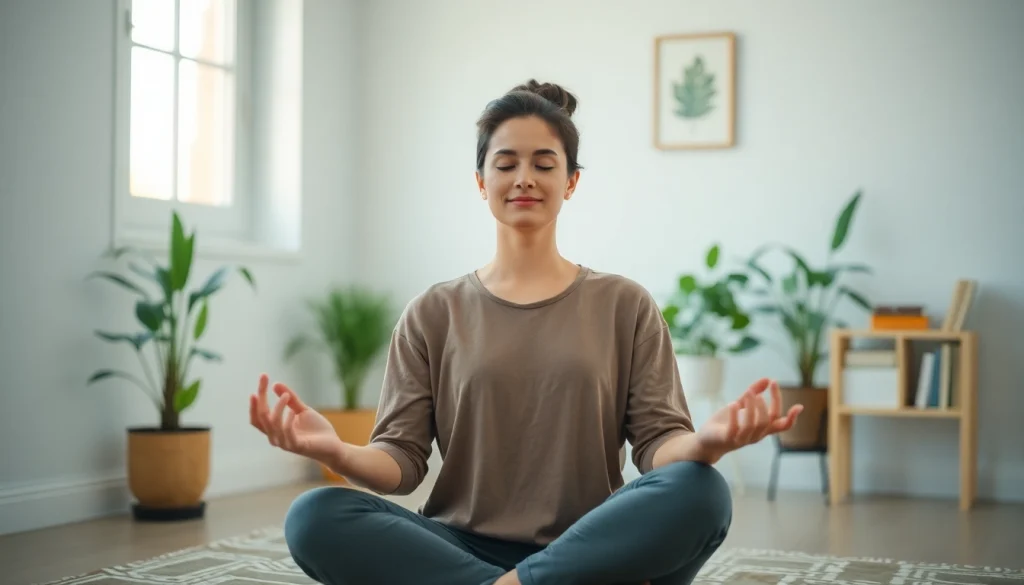
Understanding Anxiety and Its Impact on Daily Life
Anxiety is an all-too-common experience that can significantly affect a person’s daily life, well-being, and relationships. It manifests in various forms, affecting how individuals interact with their environment and respond to stressors. Acknowledging and understanding dealing with anxiety is the first step toward effective management and improving quality of life.
What is Anxiety?
Anxiety is a natural response to stress, characterized by feelings of apprehension, worry, and fear. It operates on a spectrum; while some anxiety can be beneficial—such as motivating us to prepare for important events—excessive anxiety can hinder day-to-day functioning. Clinical anxiety disorders include generalized anxiety disorder (GAD), panic disorder, and social anxiety disorder, among others.
Recognizing Anxiety Symptoms
Recognizing the symptoms of anxiety is crucial for timely intervention. Common symptoms include:
- Physical Symptoms: Increased heart rate, sweating, trembling, fatigue, headaches, and stomach issues.
- Psychological Symptoms: Constant worry, difficulty concentrating, irritability, and restlessness.
- Behavioral Symptoms: Avoidance of social situations, procrastination, and changes in eating or sleeping habits.
Understanding these symptoms can help individuals identify their experiences and seek appropriate support or interventions.
The Influence of Anxiety on Relationships
Anxiety can profoundly affect relationships with family, friends, and colleagues. It can lead to misunderstandings, withdrawal from social interactions, and increased tension. Many individuals struggling with anxiety may isolate themselves, creating a barrier to connection. Open dialogue, empathy, and support can significantly alleviate these pressures and foster healthier relationships.
Effective Techniques for Dealing with Anxiety
Numerous strategies can help mitigate anxiety. These techniques not only alleviate immediate symptoms but also encourage long-term resilience.
Mindfulness and Meditation Practices
Mindfulness involves being present in the moment without judgment. Research indicates that mindfulness and meditation practices can significantly reduce anxiety levels. Techniques such as guided meditations, body scans, and mindfulness-based stress reduction (MBSR) can help restore a sense of calm. Regular practice fosters emotional regulation and improves overall mental health.
Breathing Exercises to Alleviate Stress
Controlled breathing exercises are effective tools. Methods such as the 4-7-8 technique—where you inhale for four seconds, hold for seven seconds, and exhale for eight seconds—can help calm the nervous system and reduce anxiety symptoms. Incorporating these exercises into daily routines or using them during anxious moments can be immensely beneficial.
Physical Activities that Help Reduce Anxiety
Physical activity is a powerful ally in combating anxiety. Engaging in regular exercise releases endorphins, improves mood, and promotes overall physical health. Activities such as walking, swimming, yoga, and dance can boost mental well-being. For best results, aim for at least 30 minutes of moderate activity most days of the week.
Cognitive Behavioral Therapy Approaches
Cognitive Behavioral Therapy (CBT) is a widely recognized therapeutic method that integrates cognitive and behavioral techniques to combat anxiety. Here’s how CBT can be instrumental in dealing with anxiety.
Identifying Negative Thought Patterns
CBT emphasizes recognizing and challenging negative thought patterns that contribute to anxiety. Individuals learn to pinpoint irrational beliefs about themselves and their surroundings, fostering the awareness needed to alter these cognitive distortions. For instance, someone experiencing public speaking anxiety learns to challenge thoughts like “I will embarrass myself” with more rational counterarguments such as “I can prepare and deliver a good presentation.”
Replacing Negative Thoughts with Positive Affirmations
Once negative thought patterns are identified, individuals can engage in the practice of replacing them with positive affirmations. This can be as simple as repeating encouraging statements such as “I am capable” or “I can handle this situation.” Regular practice helps reshape the mind’s narrative, leading to improved self-esteem and reduced anxiety levels.
Setting Realistic Goals for Anxiety Management
Creating and setting achievable goals is vital in the process of managing anxiety. Goals should be specific, measurable, attainable, relevant, and time-bound (SMART). For example, rather than stating, “I want to feel less anxious,” a SMART goal would be, “I will practice mindfulness meditation five days a week for ten minutes.” This structured approach increases motivation and provides a clear path toward progress.
Building a Support System for Managing Anxiety
Having a robust support system is essential for navigating anxiety. It involves cultivating relationships and utilizing various resources to help in the coping process.
The Role of Friends and Family
Friends and family can provide emotional support, understanding, and encouragement. Open communication about anxiety experiences fosters empathy and strengthens bonds. Additionally, participating in social activities with loved ones can divert focus from anxiety and promote feelings of connection.
Seeking Professional Help and Resources
For individuals experiencing persistent anxiety, professional help is crucial. Mental health professionals—therapists, psychologists, or psychiatrists—can offer tailored interventions such as therapy, medication, or a combination of both. Seeking guidance from these experts can be a pivotal step toward recovery and improved mental health.
Joining Support Groups for Anxiety
Support groups provide a safe space for individuals to share experiences and coping strategies. These groups can be found locally or online, offering varied formats and levels of interaction. Connecting with others who understand similar challenges fosters a sense of belonging and reduces feelings of isolation.
Long-Term Strategies for Living with Anxiety
Beyond immediate coping mechanisms, developing long-term strategies for living with anxiety is vital for sustained mental health.
Developing Healthy Routines
Establishing healthy routines can bolster mental resilience. Daily practices should include regular physical activity, balanced nutrition, sufficient sleep, and spiritual or reflective practices. Routines provide structure and stability, essential during anxious episodes.
Monitoring Progress and Adjusting Strategies
Keeping track of progress is essential for effective anxiety management. Journaling about experiences, challenges, and breakthroughs can illuminate patterns over time. This awareness helps individuals distinguish between effective strategies and those needing adjustment.
Embracing a Lifestyle of Self-Care
Maintaining a lifestyle of self-care is crucial for long-term anxiety management. Engaging in activities that bring joy, relaxation, and fulfillment, such as hobbies, recreational outings, or creative expression, fosters emotional well-being. Prioritizing self-care reinforces resilience and promotes healthier coping mechanisms.





